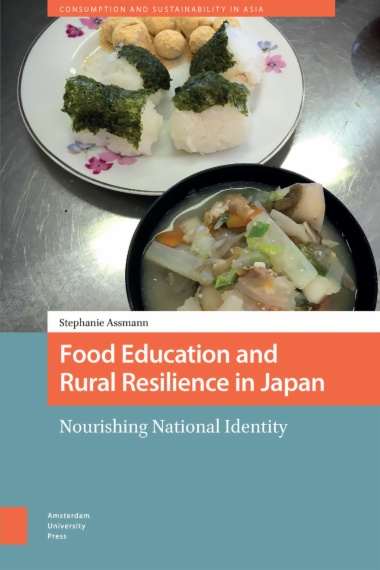Food education initiatives exist worldwide, but Japan remains unique with its food education law known as shokuiku. The country’s impressive health metrics — high life expectancies, low obesity, and affordable health care — often lead observers to praise this approach. This book presents a more nuanced analysis. First, it challenges the assumption that food education is wholly a “good thing” by exposing underlying power mechanisms. Through food diagrams, food fairs, and school lunch programs, government ministries promote both nationalism and traditional gender roles. Second, it explores how food education operates in Japan’s rural regions, where educators champion resilience and food self-sufficiency to alleviate depopulation and economic decline. This emphasis on local food persisted even in the aftermath of the 2011 Fukushima nuclear disaster. Using Foucault’s concept of governmentality, historical contextualization, and extensive fieldwork in rural Japan, this study reveals the complex political agenda driving food education in a non-Western society.
- Cover
- Half Title
- Series Page
- Consumption and Sustainability in Asia
- Title Page
- Copyright Page
- Table of Contents
- List of Tables and Figures
- List of Abbreviations
- Acknowledgments
- Introduction
- The Shokuiku Campaign in Japan
- Objectives
- References
- Chapter 1: Food Education: A Theoretical Framework
- Bodies Matter—The Body and Health in Sociology
- Health in Governmentality Studies
- Power, Knowledge, and Risk
- Governmentality and Gender
- Governmentality in Food Education
- Critical Approaches to Governmentality
- Power Mechanisms in Health and Food Education
- References
- Chapter 2: The Historical Trajectories of Food Education
- Dietary Guides in Premodern Japan
- The Early Shokuiku Teachings: Herbert Spencer as an Inspiration
- Inspired by Herbert Spencer: Ishizuka Sagen
- The Popularization of Shokuiku Through Murai Gensai
- Gendered Education and Home Economics
- Shokuiku Theorists on Meat-Eating
- The Beriberi Debates
- Public Health and Institutionalized Catering
- School Lunch Programs as an Arena of Culinary Politics
- Shokuiku Policies and Culinary Politics in the Post-War Period
- Shokuiku and School Lunch
- Washoku—The Ideological Foundation of Shokuiku
- Washoku—The Perception of a Domestic Audience
- The Rise of Culinary Politics
- References
- Chapter 3: The Shokuiku Campaign: Food Governmentality in Present Japan
- Intersections between Public Health and Shokuiku
- The National Health and Nutrition Survey
- Intersections between Shokuiku and Moral Education
- Investigating Our Morality: A Textbook on Moral Education
- Ministerial Collaboration in Reinforcing Shokuiku
- The Governmental Budget of the Shokuiku Campaign
- Endorsing the Shokuiku Campaign: Prominent Individuals
- Food Guides in International Comparison
- A Critical Analysis of Food Guides
- The Food Guide Spinning Top in Japan
- Awareness Surveys of the Food Guide Spinning Top
- Surveys, Food Guides, and Moral Education—The Dispersion of Power
- References
- Chapter 4: Shokuiku Policies in Rural Areas
- Population Shrinkage and Economic Decline
- Shokuiku and Machizukuri Policies
- The Field Site—Taketa City
- The Population in Taketa City
- Managing Population Decline in Taketa City
- Dietary Life and Shokuiku Activities in Taketa City
- School Lunch at Taketa City Naoiri Elementary School
- A Cooking Class at Taketa City Naoiri Elementary School
- The Long Table
- Shokuiku Activities for Mature Adults
- Aging Populations in Ōita Prefecture and Taketa City
- Inspiring Resilience
- References
- Chapter 5: Food Education and Sustainability in Times of Crisis
- The Shokuiku Campaign as Part of a Policy Framework
- Agriculture
- Food Self-Sufficiency
- Food Safety
- Emphasis on Chisan Chishō (Locally Produced, Locally Consumed)
- The Great East Japan Earthquake
- The Adjustment of Food Safety Standards
- The Impact of the Great East Japan Earthquake on Shokuiku Policies
- The Supporting Through Eating Campaign
- The Second and Third Plans for the Advancement of Food Education
- The COVID-19 Pandemic
- Shokuiku Policies during the COVID-19 Pandemic
- Hidden Objectives: Food Self-Sufficiency and Food Safety
- References
- Chapter 6: Moving Forward: Embracing Sustainability
- Evaluation of Shokuiku Policies
- Food Poverty
- Food Waste
- Future Tasks
- References
- References
- Index

